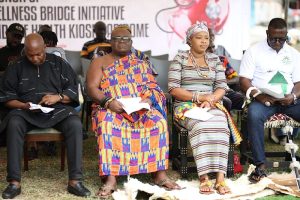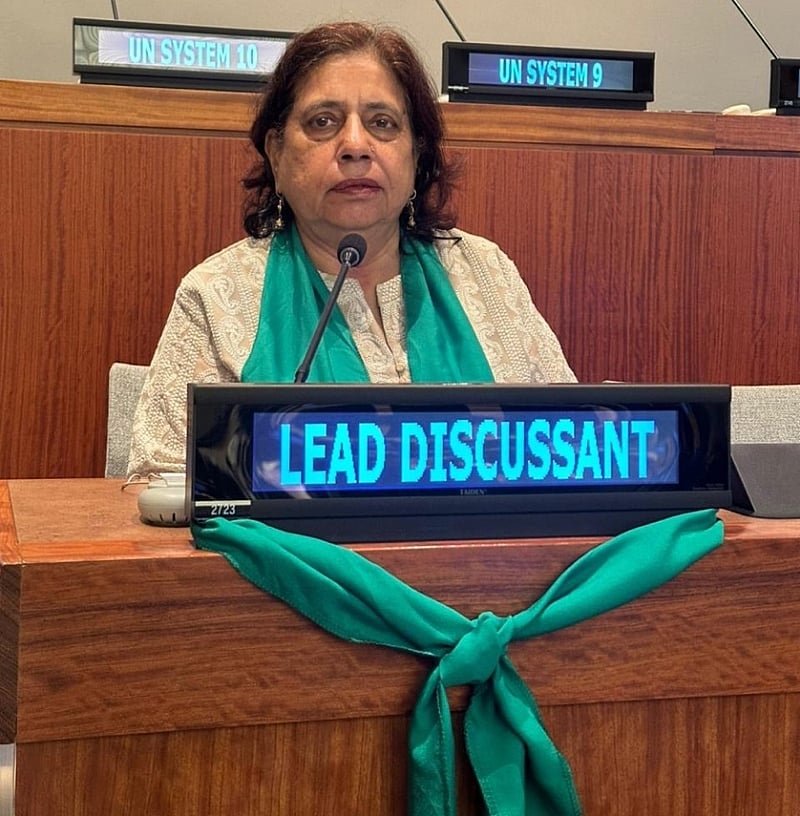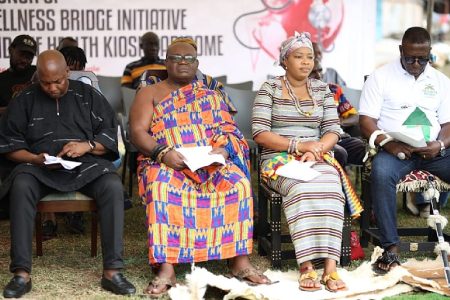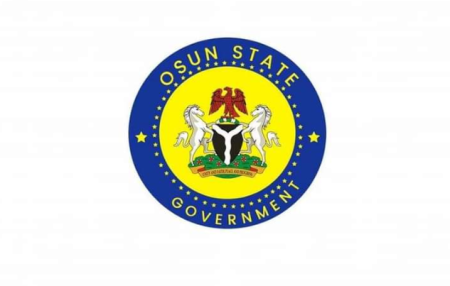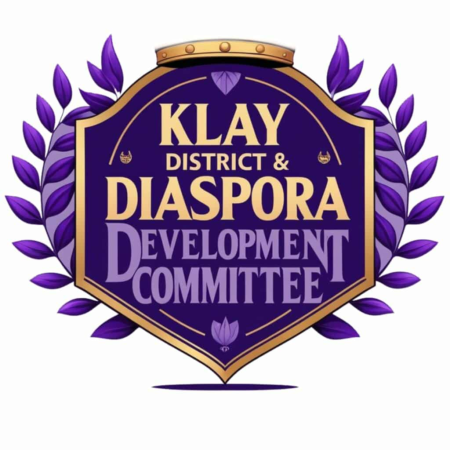Health and gender equality are inextricably linked, representing fundamental human rights that must be universally recognized. Shobha Shukla, representing the Asia Pacific Regional Civil Society Engagement Mechanism at the 2025 High-Level Political Forum (HLPF) on Sustainable Development, emphasized this crucial connection, advocating for the prioritization of these rights in all nations. The HLPF, themed “Advancing sustainable, inclusive, science- and evidence-based solutions for the 2030 Agenda and its SDGs for leaving no one behind,” focused on a comprehensive review of several interconnected SDGs, including SDG 3 (health and well-being) and SDG 5 (gender equality). Shukla highlighted the stunted progress on SDG 3 within the Asia Pacific region, particularly concerning access to sexual and reproductive health services, disease prevention, and universal health coverage.
A significant barrier to achieving SDG 3 is the pervasive gender inequality across the region. Shukla pointed to the detrimental impact of gender disparities on health outcomes, asserting that progress in health is intrinsically tied to achieving gender equality. She called attention to several contributing factors hindering progress, including the rise of anti-rights and anti-gender ideologies, reduced funding for gender equality and health initiatives, austerity measures adopted by debt-ridden countries, and inadequate domestic resource allocation for healthcare. These factors, she argued, are reversing advancements made towards achieving health and well-being goals. Furthermore, the defunding of development assistance targeted at gender equality and health exacerbates the existing challenges and jeopardizes vulnerable populations.
Shukla underscored the critical importance of including sexual and reproductive health services within essential healthcare packages. This includes safe abortion and post-abortion care, menstrual health hygiene, and mental health services. She stressed the necessity of tailoring these services to meet the specific needs of diverse groups, including women, adolescent girls, persons with disabilities, indigenous populations, gender diverse communities, older adults, youth, migrant workers, refugees, people living with HIV, sex workers, and people who use drugs. Furthermore, holistic care and support for survivors of sexual and gender-based violence are paramount. True universal health coverage (UHC), according to Shukla, extends beyond mere coverage statistics; it encompasses care, justice, and equity, ensuring access for marginalized communities while upholding a rights-based, gender-transformative, and person-centered approach. UHC, she affirmed, is inherently linked to the realization of sexual and reproductive health, rights, and justice, including access to safe abortion. Health, therefore, cannot be achieved without ensuring fundamental rights, bodily autonomy, and justice for all.
Addressing the global threat of antimicrobial resistance (AMR), Shukla, also Chairperson of the Global Antimicrobial Resistance Media Alliance (GAMA), urged nations to combat the misuse and overuse of medicines across all sectors. She advocated for leveraging the WHO Framework Convention on Tobacco Control (FCTC) to hold the tobacco and nicotine industries accountable for their detrimental impact on human health and the environment, highlighting the importance of ending corporate interference in public health policy. She further emphasized the need for gender-transformative reforms within the global financial architecture to address the cyclical debt burden impacting many countries in the Global South, forcing them into austerity measures that compromise essential public services like healthcare, education, and social protection. Shukla stressed the supremacy of the UN Charter and other legally binding treaties like CEDAW, WHO FCTC, ICDP 1994, and the Beijing Declaration 1995 over trade deals, asserting that profit should not supersede people’s fundamental rights and well-being.
Reflecting on the COVID-19 pandemic, Shukla criticized the “Global North heavy multilateralism” that failed the Global South, pointing to the inequitable distribution of vaccines and the hoarding of resources by wealthy nations. She urged for a more equitable global response, advocating for the suspension of patents and the lifting of trade barriers impeding access to essential medicines and medical technologies. Governments, she argued, must prioritize occupational health, provide workers with the “right to know,” focus on preventative measures, and establish protective exposure limits, particularly for vulnerable populations. She emphasized the importance of fully funding SDG 3 targets and called on developed nations to fulfill their Official Development Assistance (ODA) commitments for gender equality and health, while simultaneously urging countries to mobilize domestic resources for health. Shukla also questioned the incongruity of discussing peace while simultaneously increasing defense budgets, calling for an alignment of actions with rhetoric.
Ultimately, Shukla emphasized the urgency of achieving SDG 3, with less than five and a half years remaining. She called upon governments to intensify their efforts to promote gender equality and the right to health, ensuring that no one is left behind. She reiterated the crucial need for health responses and all public services to be person-centered, gender transformative, and rights-based, inclusive of all individuals without any conditions or exclusions. The HLPF serves as a vital platform for reviewing and monitoring progress towards the SDGs, and Shukla’s advocacy underscores the critical interconnectedness of health, gender equality, and human rights in achieving the 2030 Agenda.



